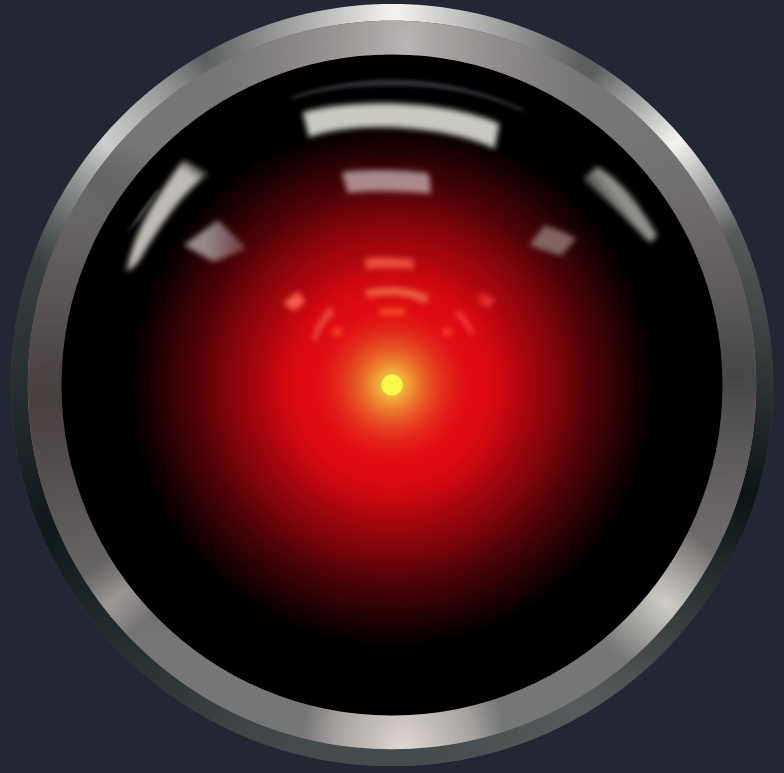i officially left windows yesterday! :)
One of us one of us
Edit: hows it going? Everything working ok?
i installed manjaro and tbh I don’t think I’m going to touch windows again unless I have to. my only unsolvable issue so far is (I think) my PC is having a hard time detecting Linux when I restart my computer. it just sometimes will tell me to restart and change to a bootable drive through BIOS.
You may need to double check how grub is configured (set it to UEFI if necessary, legacy mode etc) and or updating it. You will want to update the firmware also and try setting grub at the top of the boot list
I honestly don’t even know what grub is :(
I always loved computers and took quite a few computer science etc classes and went to my local tech college for IT while still in high school. but now I seriously feel like an old grandma trying to learn all this new fangled computer stuff!!
Oh no worries! Grub is the boot loader. So you turn on the computer and the firmware looks at its list of things to boot from. When you first installed manjaro it booted from the usb and let you install the OS while running off the usb. Usually you would have had to go into the firmware to adjust the boot priority list, and put usb on the top. Now you can go back in and look at that boot priority list again. Now what you’re gonna look for is where manjaro installed grub you can make that the top priority so that next time you reboot it will choose grub, and grub will fire up your linux install. Also in that firmware menu you can look at the other boot options, for example if you have an HP laptop you’re going to need to enable legacy booting because the default secure boot settings sometimes cause issues.
You will probably hear a lot of hate about Manjaro but I absolutely love it. I have an AMD/nvidia laptop (possibly one of the worst combinations to have according to legend) and Manjaro ended up being the most stable distro for me. It is Arch adjacent but comes with sane defaults. Then I found my-laptop specific kernels and now I am in heaven. Uptime is at 21 days but still buttery smooth 165Hz KDE6 Wayland goodness every time I use it.
I felt the exact same how you do now, once I got it up and running how I liked it, I (almost) never booted Windows again.
I just gave up on Manjaro. It may have been hardware related though, hopefully you have better luck.
I am having a great time with openSUSE LEAP tho. I’ve had a much easier time getting EVERYTHING to work. If you run into more problems, give it a try!
Definitely my Framework 13 AMD. This machine is truly perfect
How’s the battery life? I was considering one recently but saw some claim that the battery would only last 4-6 hours and that put me off.
I have the 55Wh battery. When I’m not using the Power Saver profile, I’d say it lasts for 5-6 hours. Using the Power Saver profile, I get around 6-7h. Keep in mind I have the base Ryzen 5 model and 16GB of RAM, so power utilization may vary depending on your configuration
What would be a configuration to maximize battery life?
I didn’t really configure anything apart from installing power-profiles-daemon, selecting the Power Saver profile in Gnome UI and lowering my screen brightness. If you’re planning on getting an Intel Framework laptop, you could use TLP to further tweak power usage but on AMD, you are advised to only use the power-profiles-daemon.
Here’s a resource on Framework’s website that may be useful to you
Switching over to a tiling windows manager has been really enjoyable. It feels like a futuristic paradigm shift
Happen to know anything about how windowed games work with a tiling manager? I often stream a buddy’s Elden Ring gameplay while playing myself, but having only one screen means I have to have the Discord popout in the top corner and the gameplay in windowed.
I haven’t tried that exact set up myself but in hyprland the default tiling would have your Elden Ring on one half and your friends the other half. Then if you opened up discord it would split one of the halves in half again. If you wanted to have discord instead floating and over top of the stream you could do that, or send it to the next “desktop” over if you don’t need to see it. You can customize each of the tiles however you like, border or no border, you can move them around…
I just started tinkering with this yesterday in Gnome on Pop! and it looked like there are options to exclude certain programs from tiling if that’s what you’re looking for.
In i3wm you can set a key bind to float a window above the tiling and it’ll do just that; You can even automate it with some custom
for_windowrules if desired.Its hit and miss, likely you have to set up window rules to get a good experiemce.
Yeah it makes a big difference. My desktop experience is quite a bit worse since bismuth stopped working in KDE.
Just flat out getting Debian to install. This was my first OS swap on a Dell Latitude. Holy whirlwind that bios is locked down with half a dozen secure boot “features”.
My problem ended up being in storage configuration. After I set it from raid to achi Debian install was able to detect the drive. Why my laptop with a single m.2 slot was configured for raid, I’ll never know.
I remember a time when that was a common thing for laptop drives to come preconfigured as Raid 0. Maybe the OEMs thought it would be easier to add storage that way…?
I get that maybe it’s preconfigured which might make sense on dell pc’s that’d fit a few drives in empty sata slots, but it took me nearly two days to think of that solution.
I figured throw it out there in case someone else has issues with an install locating the main drive on a Dell.
I just got a Dell precision through work, and I am glad I accidentally stumbled on that in the bios menu, I would not have guessed either
Not the latest, but one of the biggest improvements was the Ultimate Hacking Keyboard. Now I have programmed the keyboard to have VIM navigation at the keyboard level. The latest was switching to neovim and setting it up properly.
Deciding on the folder where to keep backups to cloudsync so i can reinstall everything from scratch.
A script full of functions that I perform often, like:
- Probe every 5min for internet connection. Play Black Sabbath when there is. (My internet goes down often.)
- Create individual tarballs/zips/rars for each subdir.
- Extract all tarballs/zips/rars from a dir. (It detects the format on its own)
- Extract all files of a DwarFS file into a dir.
- Re-encode all vids from a dir.
- Delete all thumbnail pictures from my user.
- Find and remove all desktop.ini and thumbs.db files in a dir, recursively.
My .bashrc then
sources that script, so to use those functions I simply open a terminal. And if I ever need to delete my .bashrc and recreate it anew, they’re safely stored in my scripts directory.If you’re comfortable running Docker, check out net probe. It comes with an all in one logging/graphing stack that will probe your internet quality based on lag and packet loss. Default configs is good enough to get you going and you can tinker to your heart’s content from there. Probably won’t play Black Sabbath automatically though unfortunately!
The black Sabbath for Internet connection is hilarious. Did you get that from the Bitcoin mining trigger bit on Silicon Valley?
No, that’s a coincidence. I wanted something that: started loud, was easy to recognise, I don’t mind hearing, and my neighbours don’t listen to. Wicked World it is.
Here’s the code by the way, with the
echotranslated:lvxInternetCheck () { while [[ $(ping -c 5 8.8.8.8 | grep -o "100% packet loss") == "100% packet loss" ]] do echo "No internet at $(date +%R)." ; sleep 300 done echo "Internet came back at $(date +%R)." cvlc /[redacted]/08\ -\ Wicked\ World.mp3 }It’s dirty but it works. (My functions start with “lvx” to avoid the tiny chance that they might clash with system functions.)
Ha, very nice!
This nice little one liner bash script, assigned to a shortcut Meta +Shift + O. It opens the flameshot GUI, let’s you select an area of text in your screen and click Ok. It OCRs the screenshot and puts it into the clipboard. It checks for whether you’re using Wayland or X11 to use the appropriate clipboard tool. Beyond the more typical text in an image scenario, it’s a convenient way to copy non-selectable text in error popups. Not my original idea, copied the concept from a suggestion in a GitHub comment thread and adapted it.
exec &> /dev/null [ “$XDG_SESSION_TYPE” = “wayland” ] && (flameshot gui --raw | tesseract stdin stdout | wl-copy) || (flameshot gui --raw | tesseract stdin stdout | xclip -in -selection clipboard)
unlocking luks over ssh
Edited my kernal parameters to prevent my CPU from going into a low power state that had been causing crashes for years apparently.
Edit: if you use 1st gen ryzen and have been putting up with intermittent crashes thinking it was your shitty old used GPU like me, try disabling c-state 6.
Ryzen crew, never rest, never sleep!
I am so confused that this is still an issue, but be warned even with more “modern” Ryzen it is an issue. My Ryzen 5(?) Huawei matebook still can’t run Linux without this shit.
Weird. I’ve used 1000,2000,3000,4000 series without any issues ever.
Fantastic for you 🙈
Got quite savie with the grub parameters, wasn’t practical tho. Wait for this baby to dye, my next one gets some prior research
Fish, and a searchable command history.
What were you using before?
Just bash
What about Ctrl+R?
Oh, I get it. You install a searchable command history on top of Fish, not that Bash doesn’t have a searchable command history.
Does Fish not have that?This one https://github.com/atuinsh/atuin
I disabled the sync capabilities tho cos i like to keep things local
Ohhh. I like that. Zsh’s history features just don’t quite line up with my needs.
First thing I install in each platform is fish
Yeah i had avoided it cos it wasn’t behaving with vscodium in flatpak but finally got around to reinstalling code on the machine directly.
Lowering swappiness to get more usage out of my RAM.
Switched to an immutable system after I finally managed to wrap my head around the concept.
I’ve tried it before but left frustrated cause my normal workflow doesn’t apply anymore.
But if you’re looking for an OS that basically disappears in the background, it’s great. I even removed the terminal cause I have no use for it on my laptop.Can you explain the idea and advantages? Excluding use cases like setting up a laptop for your grandma.
Generally I use my computer to launch programs that do the stuff I want to do, or edit my files.
My files are in /home and programs for the tasks I need are available as flatpaks.
So I don’t need to rummage around in the rest of the file system. You could call it “a laptop for grandma” except I’m not that old. I use my laptop for office stuff, gaming, photo editing, streaming music and video, browsing, mail, messaging, ssh’ing into my servers, etc. What I don’t use it for anymore is tinkering with my OS. I’m fine with default Gnome and I don’t need to adjust every little thing, I can just adjust myself a bit to how the GUI works.
I just don’t want to read Arch news before I update weekly, set apt-pinning priorities to disable snap, deal with recommended dependencies, meta packages, mirrorlists, third-party repo urls, gpg keyfiles, file permissions, executable flags, systemd services, and all that jazz anymore.I think I am one the same state as you with the only difference is that I really like Window Managers. Been thinking of testing NixOS or Blend OS.
Hey, that’s why I wanted an explanation! The one I got an a search result made it seem like you can’t install anything.
Yeh, immutable distros… You can install software, it’s just you have to declaratively define what software you want, then apply that as a patch.
You don’t justapt install cowsay, you have to create a file that defines the installation of cowsay.
This way, if you have to change how cowsay is installed, you tweak that patch file and reapply it.
If you have to wipe & reinstall (or get a new computer or whatever) you just apply all your patches, and the system is the same again.You’re talking about declarative systems like Nix. Immutable just means that the root filesystem is read-only. You can install programs as Flatpaks or inside a container (toolbox on Silverblue).
Oh, no kidding.
I always thought immutable required the declarative installs.
I guess, immutable is more “containerised userland”?
I just bought another (cheap quad core 256GB SSD) thinkcentre as a tinker platform.
So I’m going to add that to my Linux uh setup (of machines).
I’ve been thinking about getting a thin client or similar for Hi-Res music listening for a while. I tried a Raspberry Pi 3b+ and the music sounded harsher and would crackle as soon as the Pi was doing anything else at the same time.
Having my PC on all day in summer is a bit overwhelming.
I have an external DAC, so I don’t need to think about how good music the PC/Raspberry/… produces.
I also have an external DAC (SMSL DO100), but the Pi struggled feeding it data.
That’s weird, was it over usb or something else? I mean it’s not very much data to be sent.
Reinstalled Arch. I had used Arch way back in 2006, but fell out of Linux because I primarily game. Now that proton has improved so much, I dropped my windows install completely. I have tumbleweed on my desktop but decided to try a real Arch install on my laptop. I appreciate how easy tumbleweed was to create an encrypted lvm with snapper rollback, but wanted to understand it a little more instead of having a GUI do it all for me.
Last night I successfully installed Arch with an “luks on lvm” setup, and was able to successfully boot! I didn’t quite get snapper working 100% either rEFInd, but I think I’m close.
I definitely appreciate how easy Linux is to install now, but it’s good to know I can do it the hard way if I need to, and learn some things along the way.














